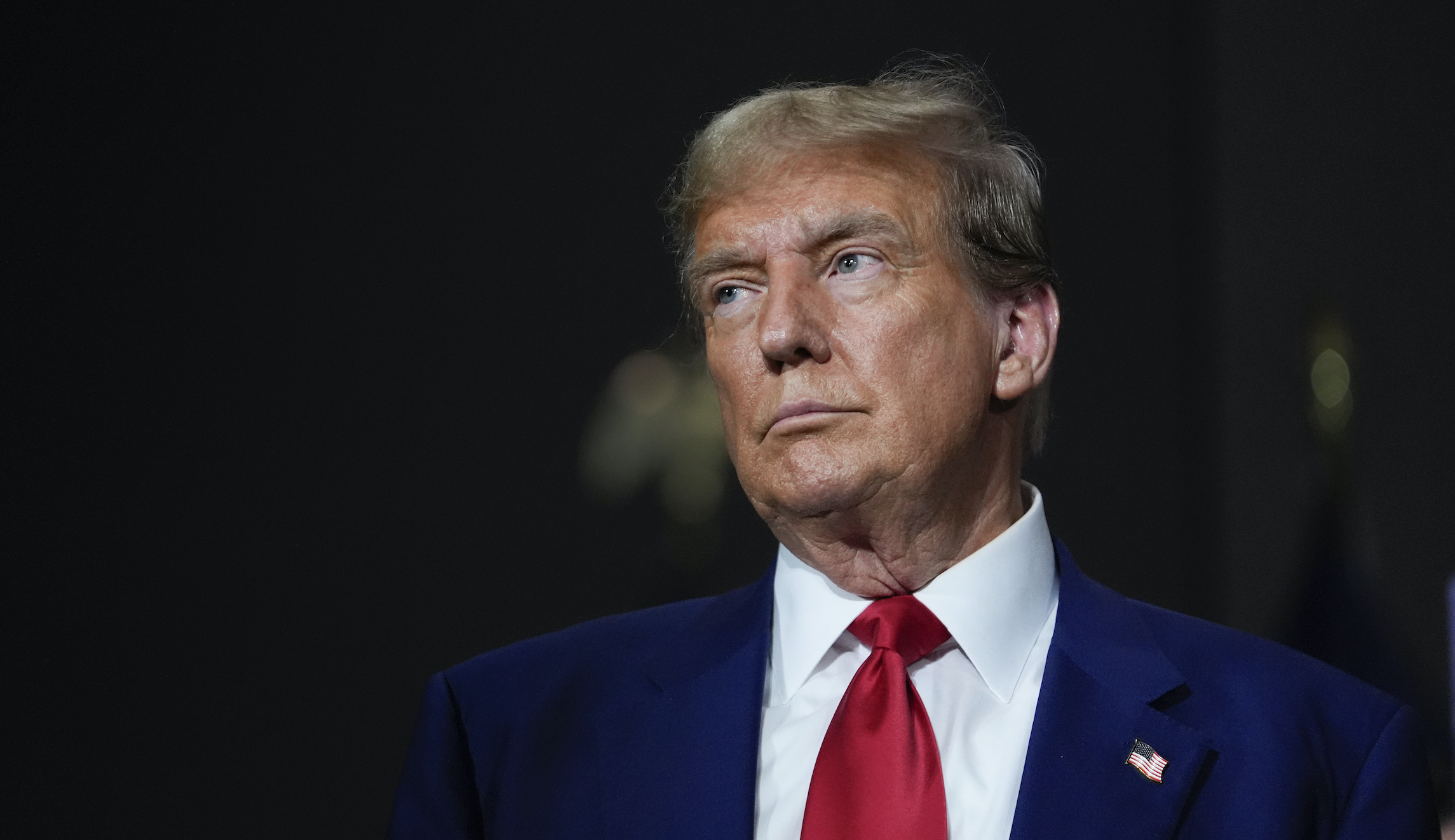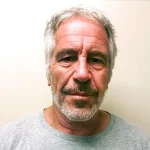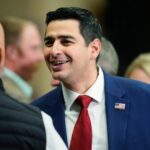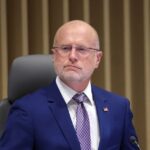

Former President Donald Trump’s hush money trial will begin on Monday, but the outcome of the case will depend on 12 jurors, whom the court will first vet through a selection process before attorneys can begin presenting their arguments.
Jury selection is a process of narrowing down a pool of random U.S. citizens who will then observe a trial and reach a verdict. While it is difficult to predict exactly how the process will unfold in a given case, there are a few typical features that are designed to lead to an impartial bench of jurors and alternates.
Defense attorneys and prosecutors both have an interest in aggressively weeding out bias that could work against their respective cases while also securing jurors who are biased in their favor, according to legal analysts.
Initial questions
Prospective jurors are first summoned to a courthouse, where a judge briefly introduces them to the case.
In Trump’s case, hundreds of New York County-based prospective jurors have been summoned to appear at a Manhattan courthouse for the first trial in history of a former president. The court has estimated the trial will take six to eight weeks.
Judge Juan Merchan will state that the defendant is Trump and explain that he stands accused by Manhattan District Attorney Alvin Bragg, an elected Democrat, of 34 felony counts of falsifying business records.
Merchan has already publicly revealed how he will explain the case to jurors, according to a letter he wrote to attorneys on Monday.
“Specifically, it is alleged that Donald Trump made or caused false business records to hide the true nature of payments made to Michael Cohen by characterizing them as payment for legal services rendered pursuant to a retainer agreement,” Merchan will say. “The people [of New York] allege that in fact, the payments were intended to reimburse Michael Cohen for money he paid to Stephanie Clifford, also known as Stormy Daniels, in the weeks before the presidential election to prevent her from publicly revealing details about a past sexual encounter with Donald Trump.”
Once prospective jurors hear details of the case, Merchan said he will excuse the prospective jurors who self-identify any “honest, legitimate and good faith reason” why they cannot fulfill the role, such as a lack of impartiality, after having heard the general details of Trump’s case.
“That will eliminate some number of jurors,” said Mary McCord, a visiting law professor at Georgetown University.
Striking jurors
Remaining prospective jurors are then typically asked questions one by one, either from a written questionnaire, orally, or both.
The judge can dismiss, or “strike,” those who show signs of bias or who lack an ability to understand the case. Defense attorneys and prosecutors can also challenge prospective jurors by asking the judge to strike them over concerns of bias, for example. Attorneys for both sides are given a finite number of chances to dismiss a prospective juror without providing a reason, known as peremptory challenges, and they have unlimited opportunities to challenge prospective jurors they believe to be impartial.
“Attorneys have what are called challenges for cause,” said Joey Jackson, a defense attorney who previously worked in the Manhattan District Attorney’s Office. “What does that mean in English? It means that if this prospective jurist says that ‘this is not the case for me because I harbor a certain kind of bias,’ they get dismissed.”
Attorneys can raise these types of challenges “all day and all night,” Jackson said.
If attorneys for one side believe their opponents are using their peremptory challenges in a discriminative manner, such as by dismissing all jurors of a certain race, they can raise an objection with the judge, who can overrule those challenges.
Jury anonymity can vary from case to case. In criminal trials, juries can be either entirely anonymous or their identities can be disclosed to the prosecution and defense. In Trump’s case, the latter will occur, but Merchan has ordered jurors’ identities to remain anonymous outside of that.
Merchan has already revealed 42 questions prospective jurors will be asked in the case of Trump, many of which are designed to root out political bias in favor or against Trump. The questions include asking if they have any opinions about Trump’s criminal cases, whether they are members of extreme ideological groups such as QAnon or antifa, and from what media outlets they consume news.
Attorneys from both sides will have an opportunity to ask follow-ups to these initial questions, so long as they are within a scope that Merchan will determine.
While catching people who lie to get seated on juries is difficult, jurors have been grilled and even prosecuted for perjury on rare occasions after being confronted with evidence that they were not truthful during the selection process.
Duration of jury selection
Jury selection could take hours, days, or even weeks. In a high-profile case like Trump’s, it could run on the longer side.
Jury selection for former Hollywood producer Harvey Weinstein’s rape trial in New York took about two weeks. In O.J. Simpson’s murder trial, it stretched more than three weeks.
“I think you’re going to see between two — somewhere in the vicinity of two weeks, maybe a little more, of jury selection in this case. Could be less. Could be more,” said Norm Eisen, a lawyer who served as special counsel for congressional Democrats during Trump’s first impeachment.
“We’ll have a very good flavor of it after the first morning,” Eisen said.
John Fishwick, a Virginia-based former U.S. attorney, explained that judges have significant flexibility over how they rein in attorneys’ questions to jurors, which is partly where the process can drag out.
“The judge is the boss of the courtroom, and so he’s not going to let the questions go on forever for jurors,” Fishwick said.
CLICK HERE TO READ MORE FROM THE WASHINGTON EXAMINER
Fishwick, however, said that in his many years as an attorney, he had only seen selection processes last up to a couple of days.
But, he cautioned, “This case is different because it’s Trump, and so all bets are off.”






